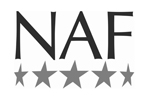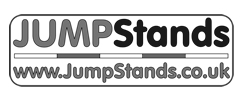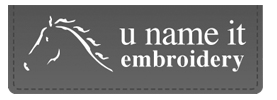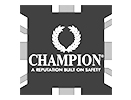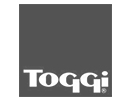Livery Terms & Conditions
All livery fees will be invoiced in advance, of the horse(s) arriving.
Forms
A properly completed Livery Agreement Form for every horses visiting Leigh Stud must be received, and should be sent to the Johnathan Bowman prior to arrival of the horse.
Passports
All horses should have their ULN (Unique Life Number) in their passports, as well as up to date Equine Flu & Tetanus Toxoid vaccination records.
Blacksmith
Horses will have their feet trimmed / shod when necessary and the owner will be charged accordingly. Alternatively, you can choose your own farrier, but horses hooves must be maintained regularly.
Worming
Horses will be worm tested as required and wormed if necessary and the owner will be charged accordingly. Alternatively, you can purchase your own wormer, but horses must adhere to the specified worming regime conducted by Leigh Stud.
Vet fees
All expenses incurred for visits, examinations and medicines are payable directly to Wessex Equine, or your appointed veterinary practise. In the event that emergency veterinary attention is necessary, all efforts will be made to contact the owner prior to treatment. However, if the owner is not available for whatever reason, a suitable vet identified by Leigh Stud will administer the treatment they consider to be most appropriate and in the best interest of the horse, and charge the owner accordingly.
Termination
In the event that the horse is to be moved from Leigh Stud, one month’s notice is required.
A detailed statement of account will be issued at the end of each month. All outstanding livery charges and associated bills MUST be settled before the horse is moved.
Training Terms & Conditions
Payment
Cancelation or rescheduling of the planned training session, where notification is received in advance of 25 hours, will be accepted with zero charge. Cancelations received in side of 24 hours will be invoiced at 75% of the intended charge. This charge will only be reduced / removed in the event of the rider / owner producing and forwarding a copy of a veterinary certificate or doctors note.
Venue
All venues chosen or suggested by the “Trainer” have been used previously and the appropriate Risk Assessment has been completed. Venues chosen by the owner / rider must have been adequately risk assessed. In the event that the Trainer feels that the venue or facilities are not safe or suitable to conduct a training session, the session will be brought to a halt immediately.
Respect
Riders are also reminded to be respectful of the venue, staff, other riders or spectators and trainer at all times. It is the responsibility of the rider to ensure that any mess made by horse, dog, rider or those accompanying the rider in the lorry park, arena or any other area should be removed, either using facilities of the venue or where no provisions are available, taking any rubbish / muck home.
Passports
All horses attending training should have their ULN (Unique Life Number) in their passports, as well as up to date Equine Flu & Tetanus Toxoid vaccination records.
Blacksmith
Horses should have their feet trimmed / shod / wearing studs (if working on grass) appropriately when attending training sessions. It is essential that hooves must be maintained regularly.
Welfare
If the trainer feels that the welfare of the horse is at risk, or that the horse is not well, not fit enough, not trained at the standard to achieve the training planned, the Trainer can refuse to conduct or halt the session at any time.
Vet fees
In the event that emergency veterinary attention is necessary, all efforts will be made to contact the Owner / Rider / Emergency contact prior to treatment. However, if the Owner / Rider / Emergency contact is not available for whatever reason, a suitable vet identified by the Trainer will administer the treatment they consider to be most appropriate and in the best interest of the horse, with the charge going to the owner accordingly.
First Aid
Although the Trainer is First Aid trained, in the event of a fall or accident the Trainer after review and initial assessment of the injuries, will arrange the relevant emergency services to attend and retain the rider if necessary. The trainer will contact the Owner or Emergency contact to advise them of the current situation and location of the rider.
Insurance
Whilst the Trainer is Accredited and Trained to Coach / Train in the sport of horse riding, and although holding the appropriate insurance. It is recommended that riders and owners have their own insurance to horse ride, show jump and cross country jump (where applicable). Please check your insurance policies to check that the discipline that you choose is covered. Riding and especially jumping a horses is deemed as a high risk sport, and those riding and handling horses are reminded that they do so at their own risk.



